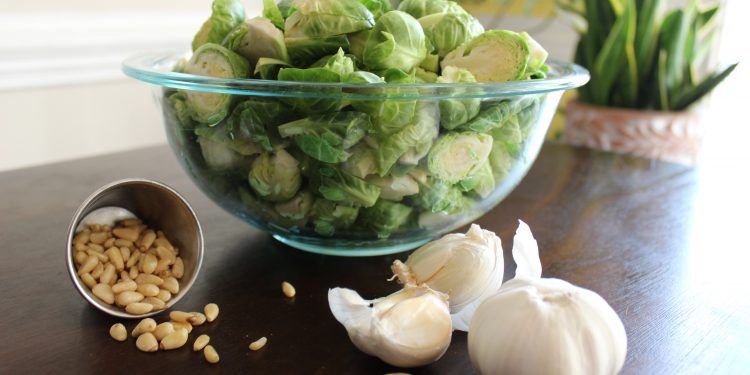by Sierra Fawn Guay, MS, RDN, LDN
One of the simplest, and most overlooked, dietary habits that many of us can implement to improve our well-being and brain health is to eat more vegetables. The recommendation to eat more vegetables is common among diets that have been linked to good brain health (including the Mediterranean-DASH Intervention for Neurodegenerative Delay or MIND Diet, the Mediterranean Diet, and the Dietary Approaches to Stop Hypertension or DASH Diet). The MIND Diet recommends eating one serving of leafy green vegetables and one serving of any other vegetable each day, while both the Mediterranean and DASH Diets emphasize the consumption of vegetables.
There are many reasons why vegetables are important tools for achieving and maintaining good health. Vegetables are excellent sources of water, fiber, vitamins, minerals, and phytonutrients.
- Water is essential for many body functions. Did you know that water is important to help maintain cognitive function?
- Fiber is important for gut, heart, and brain health. Eating adequate fiber helps maintain good bowel regularity, and healthy cholesterol and blood sugar levels. Did you know that eating enough fiber can help you feel full for longer periods of time?
- Vitamins and minerals are essential for nearly all body functions. Did you know that eating vitamins and minerals from vegetables is more effective (and less expensive) than taking supplements?
- Phytonutrients are components of foods that provide some physiological benefit. Phytonutrients act as antioxidants, support our immune systems, and fight inflammation. Did you know that vegetables are one of the best sources of phytonutrients?
Eating more vegetables can seem challenging at first. Here are three tips to help:
- Fill half of your plate with vegetables at each meal. If you are not eating from a plate, be sure to include vegetables as a side dish or as an ingredient (think pizza with a side salad, or vegetable soup).
- Eat vegetables in whatever form you have access to and can afford. Fresh, frozen, and canned vegetables are all good options.
- Challenge your beliefs. This tip is a personal favorite, since people often tell me that they do not like any vegetables. While this used to unnerve the dietitian in me, I have come to understand that most people who tell me this have not actually tried vegetables in years, and what most people mean is that they do not like the tasteless mush they were forced to eat many years ago as children. Below, you will find an easy-to-create recipe for roasted Brussels sprouts, which I implore you to try even if you have a distant childhood memory of hiding boiled, unseasoned, mushy Brussels sprouts in a napkin because even your dog would not eat them.
Roasted Brussels Sprouts
Ingredients:
2 lbs Brussels sprouts, washed, ends trimmed, and cut into halves*
1-2 tbsp olive oil
5-10 cloves of garlic, peeled
2-3 tbsp pine nuts (optional)
Salt and pepper to taste
Instructions:
Preheat oven to 400 degrees F. Toss Brussels sprouts and garlic cloves in olive oil and spread in single layer on baking pan. Sprinkle with salt and pepper. Shake pan every five minutes or so. Roast until Brussels sprouts have browned and edges are crispy, about 20 minutes.
Meanwhile, on the stove top, add pine nuts to shallow pan and roast over medium heat until lightly browned and aromatic, about five minutes.
Combine Brussels sprouts and garlic with pine nuts. Serve warm. Enjoy!
*When you cut the sprouts into halves, some leaves will fall loose. Keep those leaves and roast them. They will be extra crispy and delicious.
Did you know that Brussels sprouts are one of the best plant sources of omega 3 fatty acids? That means that these beautiful vegetables are especially beneficial for our brains!
Sierra is a registered dietitian who works with brain injury survivors in Greenville, North Carolina.











